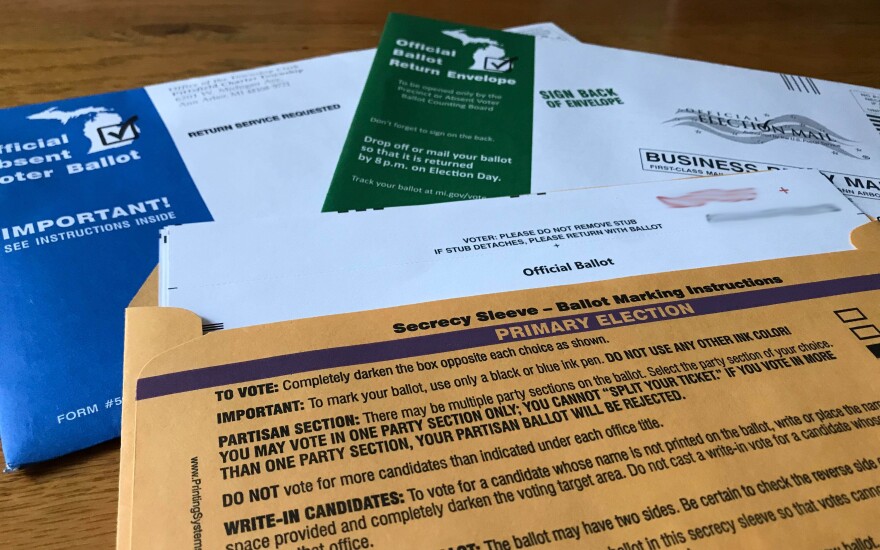Dearborn wants to provide ballot translation for its Arabic-speaking population, but the Wayne County Clerk has concerns about it.
Last month, the Dearborn City Council passed a resolution that required the city clerk to translate ballots into languages spoken by at least 10,000 or 5% of the city’s residents. In Dearborn, that means Arabic as well as English. The resolution also applies to voter registration forms and other election materials.
But in a letter to the Michigan Secretary of State, Wayne County Clerk Cathy Garrett questioned whether they have the authority to do that.
“I look forward to reviewing the legal authority provided to the City of Dearborn from your office and the approved steps a City or Township in this state, that is not bound by federal mandate, follows regarding ballots and election materials being translated in other languages,” Garrett wrote in a letter to the Michigan Secretary of State’s office.
“The protocols on this matter are very important for not only those minority languages in Wayne County, but in the entire state.”
Garrett noted that the resolution does not “does not specify any language or dialect.” She went on to question whether any Michigan city has the right to print ballots in languages without a federal or state requirement. Garrett added that she is “in full support of expanding accessibility for citizens who are unable to speak or understand English adequately enough to participate in the electoral process,” but said she worried that translated ballots would be deemed “unofficial” and possibly go uncounted.
In a reply letter, the Secretary of State’s office gently rebuffed Garrett’s concerns.
“Section 203 [of the Voting Rights Act] requires ballots be translated to some languages if 5% or 10,000 members of a jurisdiction’s population speak one of those languages,” the letter read. “However, the law does not prevent jurisdictions from translating ballots to other languages, and even if a lower percentage of the population speaks that language or if the language is not specifically covered by the Voting Rights Act.”
The letter goes on to say that Michigan election law “does not prohibit printing ballots in other languages in addition to English,” adding: “If the City of Dearborn and Wayne County seek to expand voting access among the more than 50% of Dearborn residents who speak Arabic, they have authority to do so under the same provisions of the Michigan Election Law governing the general printing of ballots.”
The Secretary of State’s letter also noted that Dearborn plans to pay for the cost of translation, and suggested the procedure Garrett’s office already has in place for providing Bengali ballot translations in Hamtramck “can likely be replicated for Dearborn.” It goes on to say that language access expansion is a priority of Secretary of State Jocelyn Benson, and offered Garrett technical assistance with the issue if needed.




